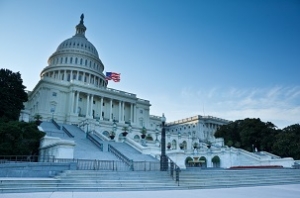For a number of years, investors have pushed companies to enhance disclosure of their corporate political spending activities. Now, a bill re-introduced by New Jersey Senator Bob Menendez is aimed at mandating this disclosure.
 While not necessarily the intention, ambiguity or opaqueness in corporate political spending has been a byproduct of the 2010 Citizens United ruling. The Supreme Court opinion recognized that “prompt disclosure of expenditures can provide shareholders and citizens with the information needed to hold corporations and elected officials accountable for their positions and supporters.” However, there is currently no standardized manner in which companies must disclosure their contributions to state and local candidates, advocacy groups, or state-level political committees. As a result, shareholders often must search through numerous campaign finance reports and detailed tax documents to get even a partial picture.
While not necessarily the intention, ambiguity or opaqueness in corporate political spending has been a byproduct of the 2010 Citizens United ruling. The Supreme Court opinion recognized that “prompt disclosure of expenditures can provide shareholders and citizens with the information needed to hold corporations and elected officials accountable for their positions and supporters.” However, there is currently no standardized manner in which companies must disclosure their contributions to state and local candidates, advocacy groups, or state-level political committees. As a result, shareholders often must search through numerous campaign finance reports and detailed tax documents to get even a partial picture.
On August 10, Senator Menendez re-introduced the Shareholder Protection Act to the U.S. Senate, a bill aimed at requiring companies to disclose their political spending to shareholders. This bill, which was originally introduced to the House in March 2010 and re-introduced in July 2011, would significantly enhance the transparency of companies’ political spending. Specifically, the bill would:
- Mandate a shareholder vote to approve an annual political expenditure budget chosen by the management for a publicly held company;
- Require that each specific corporate political expenditure over a certain dollar threshold be approved by the board of directors and promptly disclosed to shareholders and the public;
- Require that institutional investors inform all persons in their investment funds how they voted on corporate political expenditures; and
- Post on the SEC’s website how much each company is spending on elections and which candidates or issues they support or oppose.
The Shareholder Protection Act was the first bill aimed at enhancing the transparency of companies’ political spending activities. For example, in June 2010, the House passed H.R. 5175, the DISCLOSE Act, which aimed to increase transparency of corporate and special interest money in national political campaigns. While the act was not passed into law, in February 2012, Congressman Chris Van Hollen introduced another version of this bill, which required disclosure of the names of those making donations of $10,000 or more within 24 hours. This act would also have required increased disclosure from corporations, unions and political organizations, such as super PACs and advocacy groups. However, Senate Republicans successfully filibustered this legislation. Additionally, a coalition of over two dozen senators and 100 house members delivered a petition to Obama in 2015 asking for an executive order curbing the ruling of Citizens United. However, none of these efforts have been especially fruitful with respect to enhancing the disclosure provided by companies to their investors.
Given the dearth of mandated disclosure on this topic, many investors have turned to private ordering in order to encourage companies to provide information on corporate political spending. Beginning in 2011, shareholder proposals relating to political spending became the most common type of shareholder proposal to go to a vote at annual meetings. In 2015 and 2016, other governance issues overshadowed those concerning corporate political spending; however, in the first half of 2017, corporate political spending again became the most frequent type of proposal reviewed by Glass Lewis, which, given the attention paid to the 2016 elections, may not be entirely surprising.
Overall, in 2017, these proposals received an average of 26% shareholder support, in line with recent years. Typically, a handful of these proposals receive majority shareholder support each season. In 2016, both Fluor Corporation and NiSource Inc. received over 50% support for corporate political spending shareholder proposals. However, in the past year no such proposal received requisite support.
Given Republican control of the executive and legislative branches of the government, it is unlikely that this bill will be enacted at any point in the near future. However, it does represent continued pressure on both companies and regulators to ensure that shareholders are afforded the disclosure required to fully assess the risks presented to portfolio companies as a result of their corporate political spending.
